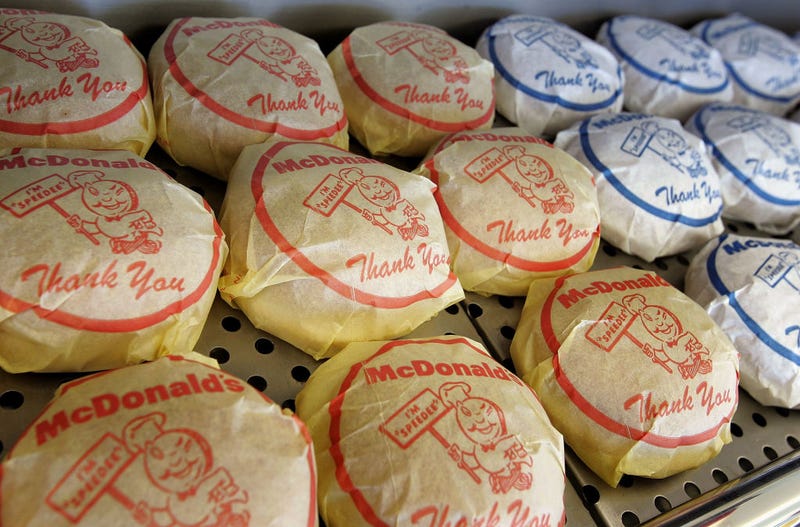
Fast-food wrappers and packaging that contain PFAS, so-called "forever chemicals," are no longer being sold in the United States.
The Food and Drug Administration made the announcement Wednesday, saying the chemicals were being used in grease-proofing materials.
"This means the major source of dietary exposure to PFAS from food packaging like fast-food wrappers, microwave popcorn bags, take-out paperboard containers and pet food bags is being eliminated, the FDA said.
The move is the result of a voluntary effort with U.S. food manufacturers to phase out food contact packaging made with PFAS, which do not degrade and can harm human health. Starting in 2020, the FDA obtained commitments from U.S. food manufacturers to phase out PFAS in wrappers, boxes and bags.
PFAS, per- and polyfluoroalkyl substances, are a diverse group of thousands of chemicals that resist grease, oil, water and heat. They've been widely used since the 1940s and are still being used today in many industrial and consumer products including adhesives, fire-fighting foam, nonstick cookware, water-repellent clothing, stain resistant fabrics and carpets, some cosmetics, synthetic turf and more.
One common characteristic of concern of PFAS is that many break down very slowly and can build up in people, animals, and the environment over time.
Research indicates that exposure to these chemicals could be linked to harmful health effects in both humans and animals including reproductive effects, developmental effects, increased risk of some cancers, reduced ability of the body's immune system to fight infections, interference with the body's natural hormones and increased risk of obesity, according to the Environmental Protection Agency.
Because of their widespread use and persistence in the environment, many PFAS are found in the blood of people and animals all over the world and are present at low levels in a variety of food products and in the environment, according to the EPA.
